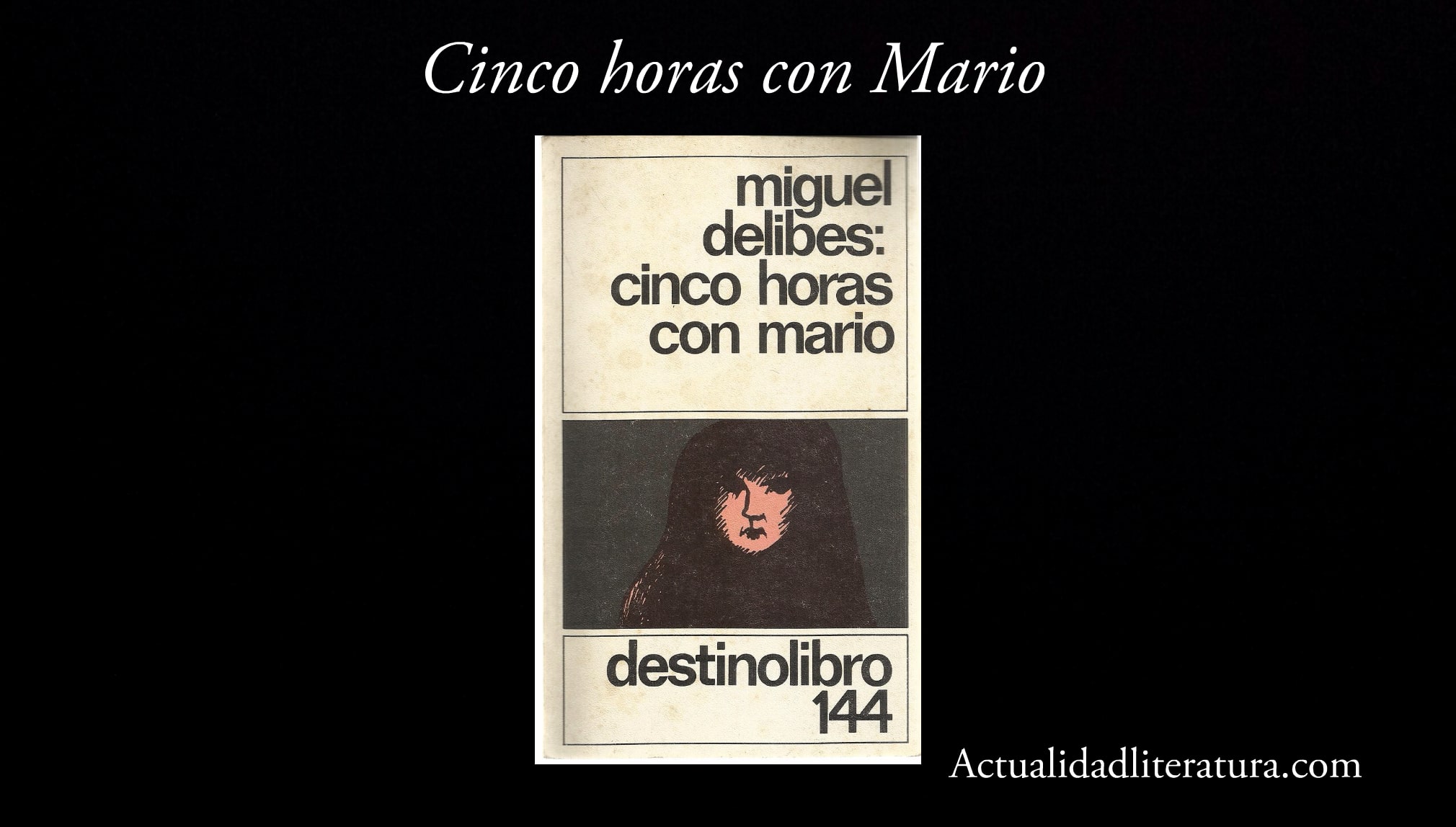
Miguel Delibes.
Miguel Delibes is considered one of the most important authors of the XNUMXth century, due, among other things, to his masterpiece: Five hours with Mario. Published in 1966, this novel is a faithful exponent of social realism, a very important literary trend in Spain in the middle of the last century. Therefore, it was a narrative style with enormous cultural weight during the Franco regime.
Through the inner dialogue of a woman in crisis —Carmen, her protagonist— Delibes exposed most of the persistent political and social tensions in Spain at that time. Not in vain, the newspaper El Mundo included Five hours with Mario within his list of "the hundred best novels of the twentieth century."
About the Author
Miguel Delibes Setién was born in Valladolid, Spain, on October 17, 1920. He was the third child of the marriage between Adolfo Delibes and María Setién. His father was the holder of the chair of Law at the School of Commerce of Valladolid. On the other hand, his maternal grandfather —Miguel María Setién— was a well-known jurist member of the Carlist political movement.
Military studies and experience
In 1936 he graduated with a high school degree from the Lourdes College in his hometown. Shortly after He served as a volunteer in the navy of the rebel army during the Spanish Civil War (1936-39). Once the war was over, he returned to his homeland to receive university training; successively he completed studies in Commerce, Law and the Arts.
First jobs
In 1941, the Valladolid newspaper The North of Castile hired Delibes as a cartoonist. After graduating as Mercantile Intendant in Bilbao, young Miguel took the chair of commercial law at the University of Valladolid. In April 1946 he married Ángeles Castro, who was his muse in many of the future literary works of the Spanish writer.
Literary career
His first book represented a debut in style: The shade of the cypress is elongated (1947), winner of the Nadal Prize. However, his second novel, Even it is day (1949), was sanctioned by Franco's censorship. After that mishap, he began to be closely followed by the regime's verifiers when he taught subjects related to the Civil War.
Anyway, with The road (1950) Delibes reached the consecration in the world of letters and literary expression of the Spanish postwar period. Although, clearly, the censorship did not stop harassing him, especially after being appointed deputy director of The North of Castile. Despite this, the Valladolid author did not stop his rhythm during the fifties and he continued to publish an average of one book a year.
Rest of novels by Miguel Delibes
- My idolized son Sisi (1953)
- Hunter's Diary (1955). Winner of the National Prize for Literature.
- Diary of an emigrant (1958)
- The red leaf (1959). Winner of the Juan March Foundation Award.
- The rats (1962). Critics Award Winner.
- Parable of the castaway (1969)
- The dethroned prince (1973)
- The wars of our ancestors (1975)
- The disputed vote of Senor Cayo (1978)
- The holy innocents (1981)
- Love letters from a voluptuous sexagenarian (1983)
- The treasure (1985)
- Hero wood (1987). Winner of the City of Barcelona Award.
- Lady in red on gray background (1991)
- Diary of a retiree (1995)
- The heretic (1998). Winner of the National Prize for Literature.
Death and legacy
Miguel Delibes passed away on March 11, 2010. More than 18.000 people attended his burning chapel. He left a very vast and rich work. Well, apart from his 20 published novels, he completed the launch of nine short story books, six travel books, 10 hunting books, 20 essays and countless newspaper articles.
Analysis of Five hours with Mario

Five hours with Mario.
You can buy the book here: Five hours with Mario
Background
On April 1, 1939, the most dire conflict in recent history in Spain ended. Franco's victory meant the ascent of the Falangists to power under the incontestable rule of "el caudillo". Additionally, the constitutional reforms of 1942 and 1947 consummated the “legalization” of the regime, with the necessary complicity of the Catholic Church.
Context
Misery was prevailing, there was no right to criticism or any direct disappointment. In consecuense, the socially committed narrative became one of the few windows capable of describing the suffering of a large part of the population. In this sense, the most notable incidents are the following:
- The salary of most of the workers barely allowed their survival.
- Although numerous small businesses were created, these generally sourced from the black market (because they had no other choice).
- Patriotism justified everything. From the extraction of oil (in bituminous fields) to the most absurd censorship in case of questioning "the good intentions" of the regime towards its governed.
Synopsis
Within the subgenre of engaged literature, Five hours with Mario belongs to the existential neorealist novel (period between 1939 - 1962). In this play, Delibes uses the monologue of its protagonist —who is at her husband's wake— to reveal the nuances of a frustrated person, very egocentric and, mainly, quite fascist.
The contrast between two lifestyles
The main character unloads in his inner dialogue all the accumulated reproaches towards his late husband. Similarly, it presents the reader with a detailed overview of the life of the Valladolid middle class during the post-war era. However, all the sentimental harshness expressed is softened, to some extent, by the brief humorous or tender segments of the text.
The play also presents a contrast between the families of the protagonists. On the one hand, Carmen's mother had a dignified, correct and honest life, just as her father was a journalist for the newspaper ABC. On the other hand, Mario's mother (the dead husband) maintained careless habits and his father was a very pessimistic man, lacking in decency even to die.
Egotism

Quote by Miguel Delibes.
At the bottom of all of Carmen's reproaches, there is a material motivation. Well, her biggest complaint is that her husband did not earn enough money in life to buy her more objects and receive more services. She also shows off her vain side by bragging about the stares she received from other boys when she was younger.
In addition, Menchu - the nickname of the protagonist - did not understand Mario's kind and polite behavior with people from the most disadvantaged classes either. Finally, the protagonist confesses to having had a love affair with a childhood friend that (she swears) did not grow older. The play closes with Carmen's request for forgiveness to her husband.